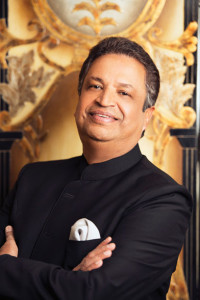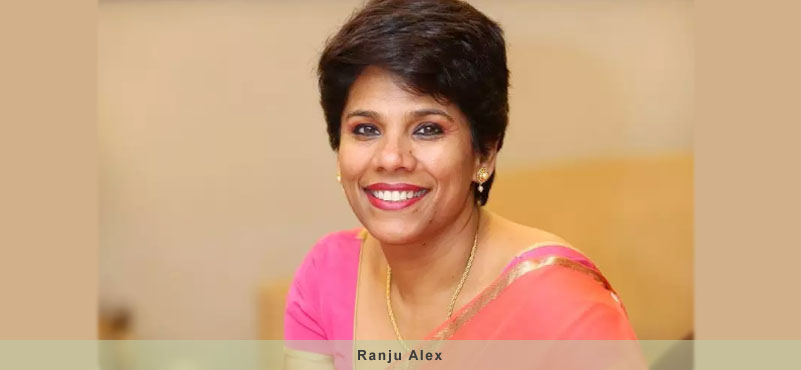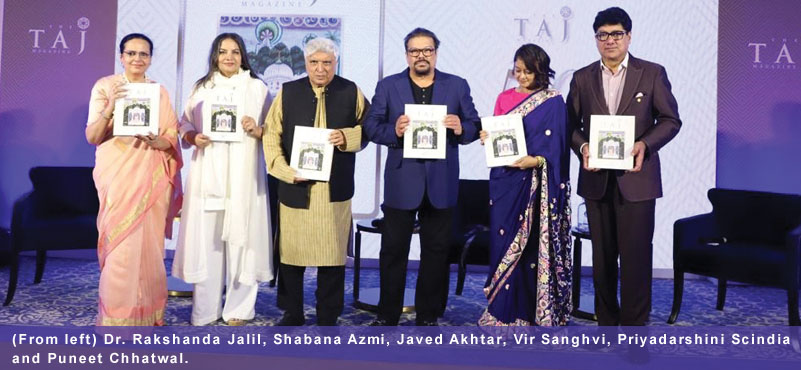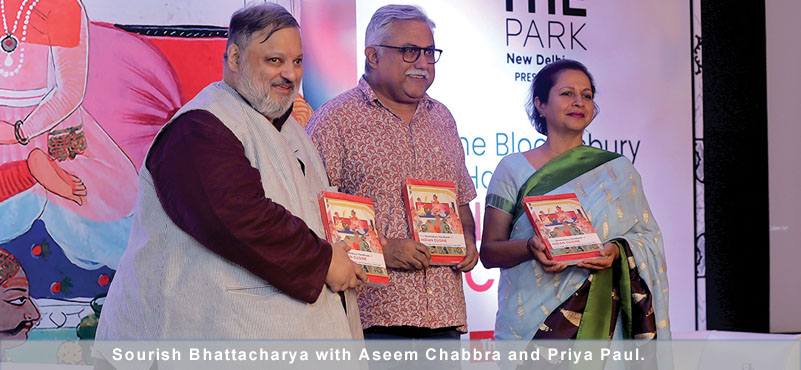Binod Chaudhary, presiding over 80 companies in diverse sectors, has a major interest in the hospitality business. In an exclusive conversation with TourismFirst, Chaudhary talks about hospitality and the larger tourism scene in South Asia. He strongly believes that India has to do more to integrate and harness the evolving tourism scene in the region. Excerpts from an hour long conversation…
Looking back, how do we see your growth story, almost three decades ago?
 What we did in 1990 is that we decided to branch out and open new frontiers in terms of our global expansion and we created a brand and company called Cinnovation, based out of Singapore. And then we looked at different opportunities to partner and did things of our own. Two of my three sons moved out and we decided that they will be non resident Nepalese and we would play more in the regional space. Essentially in a territory which would be about 4 to 5 hours of a plane journey, so these could be South Asia, Africa and Middle East. So in that context we formed a partnership with Taj. Mr. Krishna Kumar had just taken over. At this point the company was looking for expansion and we have a long association with South East Asia dating back to my father’s time when we used to deal with Korea, Singapore and Japan. Nepal has always been very closely integrated with that part of the world. Nepal at one point used to be like Hong Kong or Singapore for Indians today. Indians used to come to Nepal for shopping.
What we did in 1990 is that we decided to branch out and open new frontiers in terms of our global expansion and we created a brand and company called Cinnovation, based out of Singapore. And then we looked at different opportunities to partner and did things of our own. Two of my three sons moved out and we decided that they will be non resident Nepalese and we would play more in the regional space. Essentially in a territory which would be about 4 to 5 hours of a plane journey, so these could be South Asia, Africa and Middle East. So in that context we formed a partnership with Taj. Mr. Krishna Kumar had just taken over. At this point the company was looking for expansion and we have a long association with South East Asia dating back to my father’s time when we used to deal with Korea, Singapore and Japan. Nepal has always been very closely integrated with that part of the world. Nepal at one point used to be like Hong Kong or Singapore for Indians today. Indians used to come to Nepal for shopping.
We repositioned Taj Samudra in Colombo, at a very difficult time. The year we decided to refinance Samudra was the year when there was a big bombing at the airport. At that time, no one would even touch any investment in Nepal.
Then we decided we are going to grow in other parts of ASEAN too. We opened in Malaysia under a management contract with Taj Asia – this is Park Marina. This has been an interesting joint venture. Where literally our entrepreneurial initiatives and capital with the operating initiatives of Taj have come together. Taj Exotica in Maldives has become an iconic brand.
Over the years, how has your investment panned out? Have you made money as you would have liked to?
These properties have done well. ASEAN properties do get influenced by tsunamis, bombings in Bali or 9/11 in Mumbai. We have made money and we have reinvested. It is not cheap. Taj Exotica used to be Taj Lagoon when we partnered. It used to get around 90 dollar ARR, and today it does around 800-900 dollar ARR. We have a Presidential Suite which during Christmas and New Year does around 20,000 dollars per night.
How is the scene in Colombo now?
Colombo city has been completely cleaned up. Apart from Taj Samudra we have three other very important businesses there, one is our JV with Jetwing. With them we have two operating properties. We have a third site in Kandy which we are going to develop soon. Then we have a separate portfolio of 11 hotels called Ceylon Hotels which we took over recently. We are upgrading and rebranding these hotels. We also have opened a very high-end tea trail. We have a new chain called Zinc Journey which used to be erstwhile Mandira, the Tata’s plantation, so we have upgraded those and now we have three bungalows.
And your Ceylon Hotels Corporation? How is that doing?
It is all being upgraded. Out of 11 hotels we are probably going to upgrade 6 of them. They are going to become some of the finest hotels in this part of the world. Each of these properties has a huge history behind them.
How much are you developing in Nepal?
Now we are finally doing it. We never did any hotels for the last 20 years. Nepal was struggling. Now it has come back. Nepal’s tourism will hit 800,000 this year. So now the rates are better. So now we will open 4 hotels. One will be a Taj, we acquired Summit. And then are doing a Zinc which is going to open in September and we are opening another wildlife resort in Chitwan, close to where Tiger Tops was. Tiger Tops has closed now. This will be a 30 key high-end resort that will be operated by Taj Safari.
How are you seeing the future of South Asian tourism?
I think Sri Lanka, Maldives, Bhutan and even Nepal they have done a great job in terms of managing hospitality and tourism.
They are way ahead of India, as far as I can tell, in terms of their potential. What stops India from creating what Maldives has done in Lakshadweep, Andaman and Nicobar. There is no connectivity. What stops you from doing it. The famous Annapurna trekking, why can’t you do that in Himachal Pradesh, in Kumuon and Garhwal. There is no trekking which compares to Nepal – it survived during the Maoist war. I have seen people who fly on a private jet just for the trek.
Bhutan doesn’t let a tourist enter unless they are prepared to pay $250. That is a different model. It is protected, limited model for high-end travellers. In Sri Lanka the government insisted on a floor rate for hotels, no travel agent can sell below a certain rate. Kerala offers the same setting, why can’t Kerala be like Sri Lanka. During Tiger Tops days, for wildlife, Nepal’s name used to come after Africa and parts of India were not mentioned.
How do see tourism within South Asia growing?
That is going on. India is big traffic generator to Sri Lanka, Maldives and Nepal. The budget airlines are carrying a lot of Indians. Going to Sri Lanka or Nepal for an average Indian is cheaper than going to some of the Indian cities. The problem is that you aren’t doing anything in India. What have we managed to achieve. Even the destinations created during the British Raj, even those have not been built upon. But to be fair, now I am getting positive signals from India. Like today, I read about the 1200 uninhabited islands, out of that some 700 will be developed for tourism. This is great news.
Would you be looking for any bigger investments in the Indian market? Because while I appreciate and welcome your getting into Concept Hospitality, keeping your profile in mind, it is a relatively small ticket investment.
This lays down the foundation for us to do bigger things together. For instance I like to see an Atlantis (Dubai) type of property in Mumbai – a 1500 room destination. But the government has to come forward. It is not possible that we take on the property developers of Mumbai to get land. The biggest problem in India is that there is a mindset problem when it comes to hotels. Somehow, India still thinks that the hotel business is a rich man’s business; it is a luxury business. So we have to make the rich men pay through their nose.
We have 8 different states producing Wai Wai, our noodles brand. The state governments spreads open the red carpet for us. They give us land, 10 years tax holiday, capital subsidy and others. When it comes to hotels, no one is interested in talking. You create more jobs in hotels, the spill-over from the hospitality sector is significant.
What is your understanding of hospitality in India at this stage?
I am very cautiously optimistic.
Why cautiously?
Cautious because the trend that I have seen and the initiatives I have seen over the years have not been very encouraging and optimistic. I am optimistic because Modiji spoke from the ramparts of Red Fort, as you said. Tourism is one of the five pillars he has chosen. But I still need to see the change in the mind sets at all levels for tourism to really blossom.
What made you foray into Concept Hospitality?
I was looking for a trusted dynamic partner who has the determination and credibility to create a company like Concept. In 4 years time, 35 flags flying across the country. We have been in hospitality long enough. We have also partnered with a management company like Alila, we also have another management company in Thailand.
How many hotels do you have around the world?
88 hotels, 11 countries, and 8 brands. And this does not include all our joint ventures with Taj and Alila. If you include these, then it is about 120 odd hotels in 11 countries. If you have a credible and strong management platform and it is backed by adequate international expertise and capital, it will do well. Suddenly Concept has become an international company with a portfolio of 8 brands.
We would like to take it to a 200 hotel portfolio by 2020 and the different brands will offer experiences that people will be happy and proud of. We are always going to be associated with India. I think we are going to make India proud through this platform.
By Navin Berry




































